Heads of the Valleys: Ex-Dawnus director monitors £1bn project
- Published

Timothy Lowe, pictured here (on the far right) at the 2017 Wales Business Export Summit, was finance director of a company that collapsed with huge debts
A man monitoring how millions of pounds of public money is being spent on a major road project was at the centre of one of Wales' biggest company failures in recent years, BBC Wales can reveal.
Timothy Lowe is a director of the Future Valleys consortium, completing the final £1bn stretch of the Heads of the Valleys dual carriageway.
Before his appointment, he was finance director of Dawnus Construction.
The firm collapsed in 2019 with debts of nearly £50m.
The Development Bank of Wales, which is owned by the Welsh government, said Mr Lowe's appointment "underwent the usual checks".
Dawnus' parent company is also at the centre of an investigation by the administrators into the cancellation of 12,000 shares, three months before going bust.
Swansea-based Dawnus had grown quickly to become a major construction company, with work ranging from new schools in Powys, to the HS2 rail link in the Midlands, to projects in west Africa.
But in March 2019 it went into administration, bringing 44 projects to a halt, including work on the redevelopment of Swansea city centre and on a relief road in Manchester.
Hundreds of suppliers from Wales and throughout the UK were affected by the collapse.
As well as private contractors, among those who lost out were public sector bodies, including Powys council, which lost £1.3m as a result of the collapse, and the Welsh government itself, which lost £500,000.
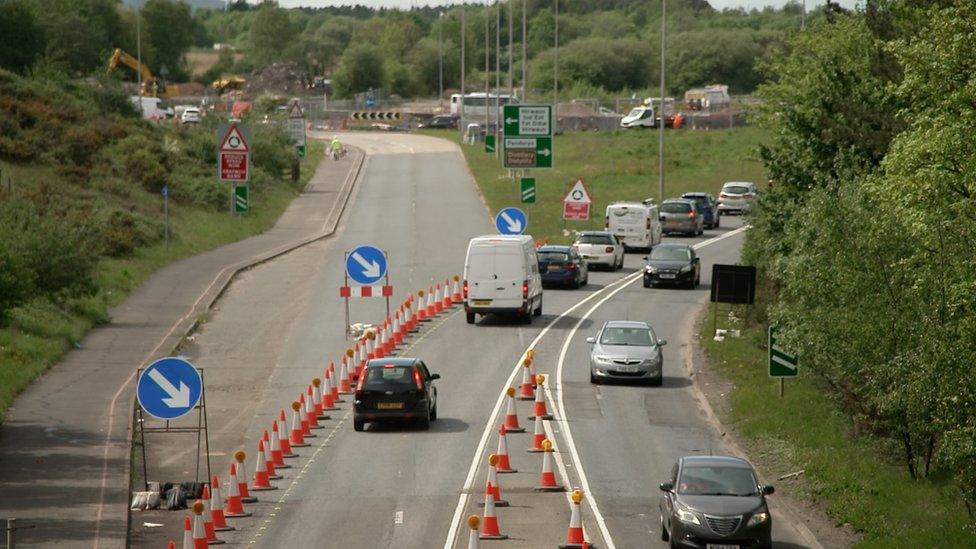
The Future Valleys consortium, of which Mr Lowe is a director, is tasked with completing the final £1bn stretch of the Heads of the Valleys dual carriageway
In October 2020, 18 months after the collapse, Mr Lowe became a director of the Future Valleys consortium to complete the final stretch of the dualling of the Heads of the Valleys road between Merthyr Tydfil and Hirwaun in the Cynon Valley.
It will be the first project to be built under the Welsh government's mutual investment model.
Rather than paying a large upfront cost, the Welsh government spreads the cost over a longer timeframe, covering the cost of the construction, maintenance and financing of the road.
At the end of the contract the road will be transferred into public ownership.
In the case of this project, the cost of the work is £590m. However, the Welsh government will pay £38m over 30 years, taking the total payment to £1.14bn, making it the most expensive road scheme in Wales.
'What was the process of appointing?'
Plaid Cymru's economy spokesman Luke Fletcher said there were questions to be asked about Mr Lowe's appointment.
"My immediate reaction was that there needs to be a lot of questions now that need to be asked, so, for example, what was the process of appointing Timothy Lowe to this position?" he said.
"I think the primary question is how do we have a guy who was director of finance for Dawnus finding himself in a position where he is at the heart of one of the biggest infrastructure projects here in Wales now, despite his background in one of the biggest corporate failures in recent Welsh history."
Mr Lowe was appointed as a director of the Future Valleys consortium by the Development Bank of Wales, which is owned by the Welsh government, and has a 15% stake in the road scheme.
It provides monitoring services on the project to the Welsh government.
A spokesman said: "Mr Lowe is the Development Bank's sole provider of consultancy services on the project, monitoring sections five and six of the A465.
"The monitoring involves providing updates to the Development Bank following board meetings on general progress, board reports and key risk matters.
"These updates inform the quarterly report provided by the Development Bank to Welsh government on its involvement in the project.
"Mr Lowe's appointment underwent the usual checks to ensure his suitability to the role, including the ability to serve as a company director.
"We were - and remain - confident in his ability to discharge his fiduciary duties.
"Since his appointment in October 2020, work on sections five and six of the A465 over which the Development Bank has oversight, has progressed as expected."
However, his appointment has also been called into question by one of the contractors who lost tens of thousands of pounds.
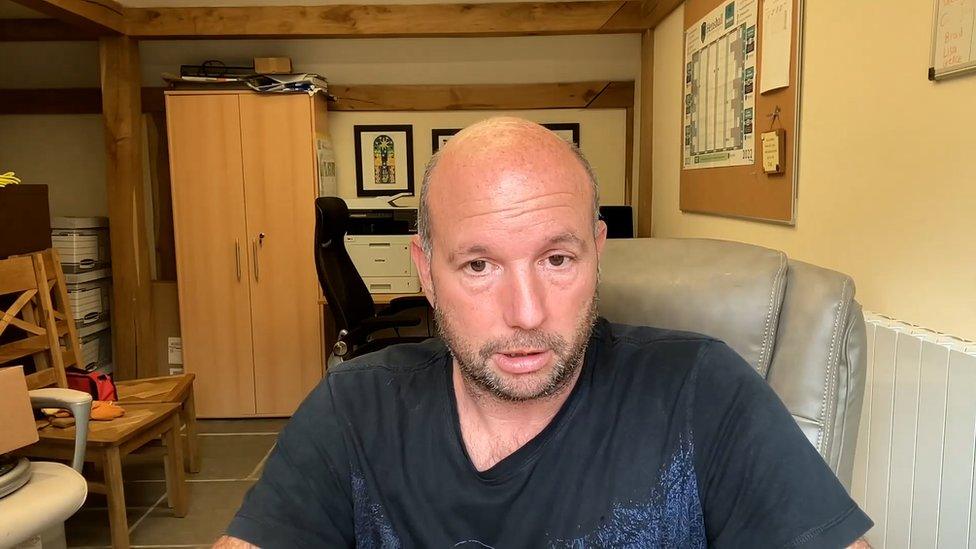
Brad Kay lost about £50,000 after his company did work for Dawnus
Brad Kay, the owner of Poplar Tree Landscapes, a contractor based in the Midlands, lost about £50,000 for work his company carried out for Dawnus on the HS2 rail link.
He said it had caused a huge amount of stress, adding: "We run a very tight ship so we don't owe lots of companies money.
'Sleepless nights'
"We don't have an overdraft, we're very sensible. So luckily, we had got the reserves in the bank to protect the company, but the stress of it had a big impact, sleepless nights, worrying what other companies would go bust.
"There was another company that was very close to going bust who owed us about £100,000.
"So within one month, we could have been losing a quarter of a million pounds which could have been disastrous."
In relation to Mr Lowe's appointment, he said: "I don't think it should be allowed.
"Dawnus went bust on the Welsh government and obviously this guy was in charge of Dawnus, its financial affairs.
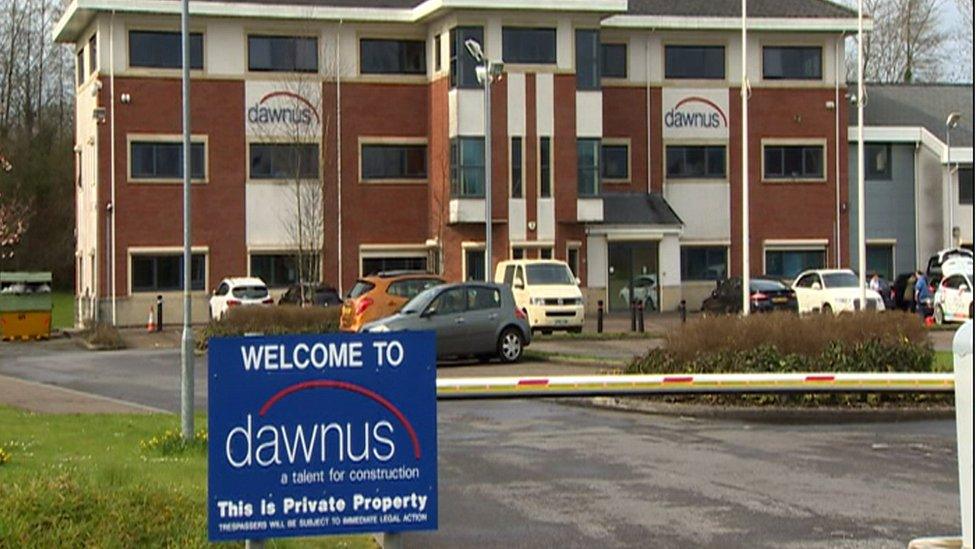
Dawnus went into administration in 2019, bringing 44 projects to a halt
"So that doesn't sound right to me. Whereas someone else might say, 'oh, you know that's happened and he's in a different role now', but I don't think that's right."
It has also emerged that a separate Dawnus company is at the centre of an investigation into the cancellation of 12,000 shares, three months before that firm went bust.
The administrators, Grant Thornton, said they have passed the matter on to a team of lawyers to look into further.
Serious financial difficulty
In a progress report on the administration process, Grant Thornton said: "We have identified a share buyback arrangement between Dawnus Group Ltd and certain directors which was triggered in the year prior to administration."
The shares were cancelled in November 2018, at a time when the company was already in serious financial difficulty and had received an emergency loan of £3.5m from the Welsh government earlier in the year.
The BBC understands that the reason for the investigation is to establish whether any of the cancellation of the shares led to less funds being available to those who were owed money when Dawnus collapsed.
When approached, Mr Lowe did not comment on the reasons for the cancellation of the shares, saying it would be inappropriate as it is in the hands of lawyers.
On the question of his suitability for the role as a Future Valleys director he said: "You will have to speak to the people who selected me."
The Welsh government said: "We provide funding to the Development Bank of Wales, such that the latter can act as public sector shareholder in mutual investment model schemes.
"If it decides to do so, after carrying out its own due diligence, it appoints a director to the board, as is the case here."
For more on this story watch Wales Live at 22:35 BST on BBC One Wales or on iPlayer
- Published23 December 2021
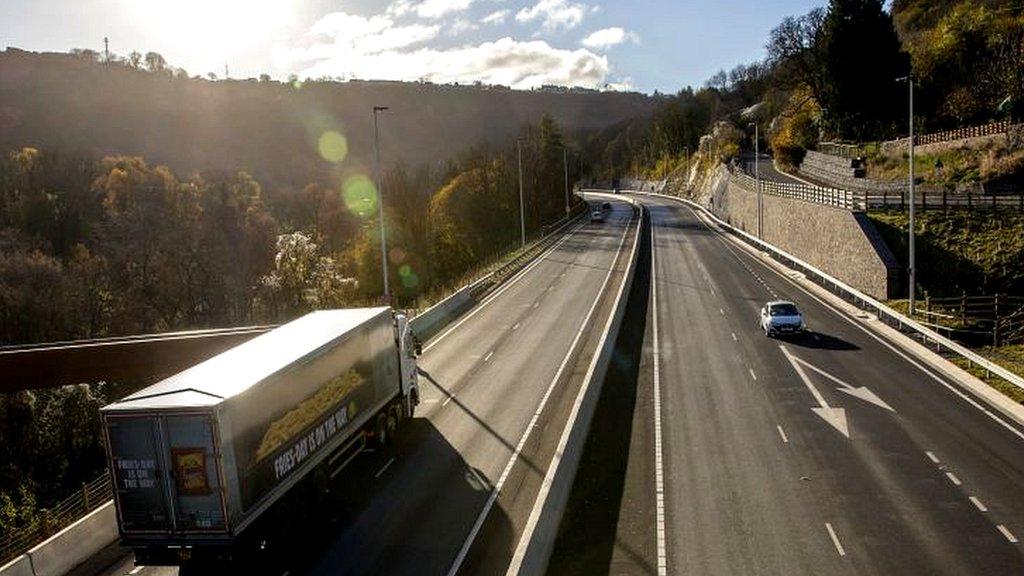
- Published30 December 2021
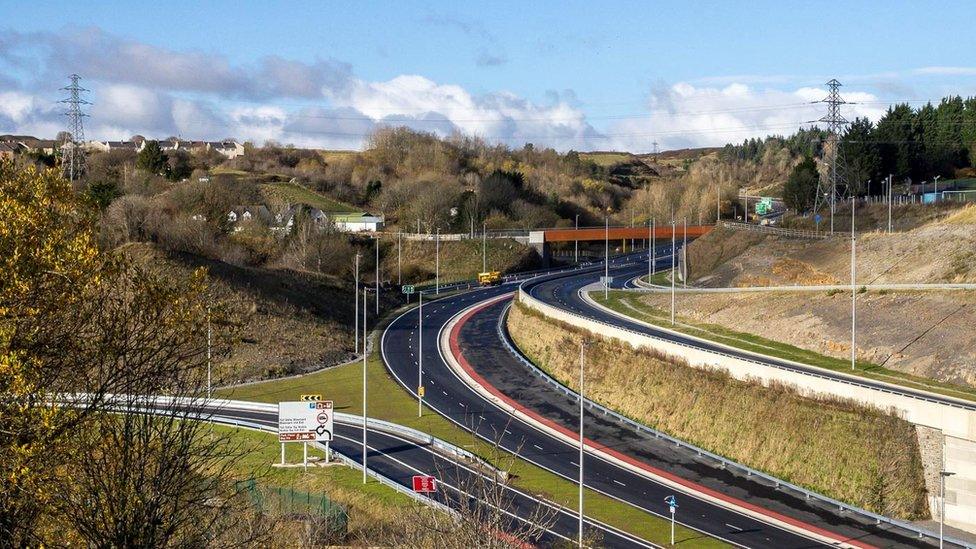
- Published21 May 2019

- Published15 March 2019
